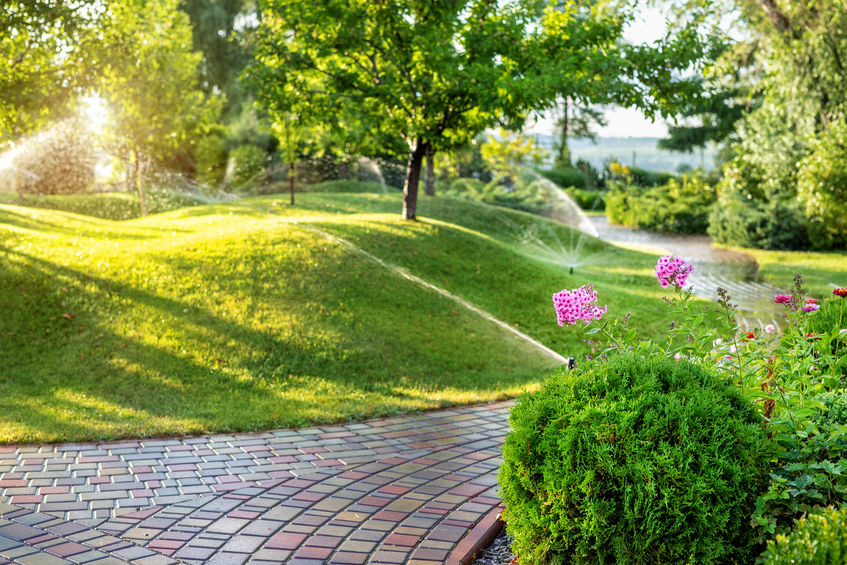
As your lawn ages, plenty of factors can conspire to cause your grasses to thin and wither. Soil compaction can effectively suffocate root systems, drought can starve your lawn of water, and shade can make it difficult for certain grass species to thrive. If you find your lawn struggling with any of these issues, the process of overseeding, or adding new seed to your existing grass, can revitalize your lawn with new life, while proper irrigation throughout the dryer months can help to give your lawn proper nutrients it needs to survive and stay healthy.
Why Overseeding Can Be Beneficial
Grasses, like any other living organism, grow slower as they age throughout the years. Each blade has a finite lifespan, and as the grass in your lawn matures, it will gradually begin to replace dead blades more slowly. By infusing your lawn with young grasses, you can speed up blade reproduction and fill out your lawn with new growth. Overseeding constitutes the easiest way to replenish your lawn with young growth.
When to Overseed
Generally, you’ll want to overseed cool season grasses such as fescue and bluegrass in the late summer or early fall. This will give the seeds a chance to germinate and take root before they go dormant for the winter. Then, in the following spring, the grasses will have the early cool months to further establish their root systems. Prior to overseeding, it’s also a good idea to core aerate your lawn. This will relieve soil compaction and increase the likelihood that seeds will take root.
How to Overseed
Overseeding is every bit as simple as it sounds. If you’re overseeding a small area, you can spread seeds by hand. For larger areas, we recommend using a rotary spreader. Spread in one direction, and then spread again in a perpendicular direction. This will give seeds the best chance of surviving.
Proper Irrigation When the Rain Doesn’t Want to Fall
It can be tricky to know how to handle your lawn during a drought, and if you don’t know what you’re doing it’s easy to overwater. Here are some easy ways to protect your lawn during a drought and avoid watering too much, or too little.
If you sense that a drought might be coming and you want to water your grass, make sure to water properly while you still can. You can perform the “spring test” to see if your grass needs to be watered: if you step on your grass and it springs back, it probably doesn’t need water. If you step on it and it stays bent, it probably needs some water!
How to Water Properly
To water properly, make sure to water in the early hours of the morning, when the grass is still wet from dew—that’s when it’ll be the most willing to accept water. Pay attention to the rainfall; if you’re expected to get an inch of rain, adjust your sprinklers accordingly. Overwatering is just as dangerous as under watering. And remember that going a week without an inch of water won’t kill your grass.
Water infrequently. You want to make sure that the moisture makes it all the way to the root of the grass, so make sure that it soaks through—but if you water too often, you’ll be mowing constantly!
If you choose to let your lawn, go dormant during the hot months, there are a couple of things you can do to keep the dormant grass healthy so that it’ll bounce back quickly when you’re able to water it again. You can use a de-thatcher to remove grass clippings and dead blades from the top of the grass, and you can aerate the lawn. Both methods will allow for any spare moisture to soak through to the root. Don’t forget to mow as needed.
When the drought is over, water thoroughly, and return to business as usual. Your grass will bounce back with a little bit of fertilizer and TLC.
At Suburban Lawn Sprinkler, we’ve been keeping grass healthy and green for many years. Give us a call today to learn more about how a new irrigation system can bring your brown lawn back from the brink.








